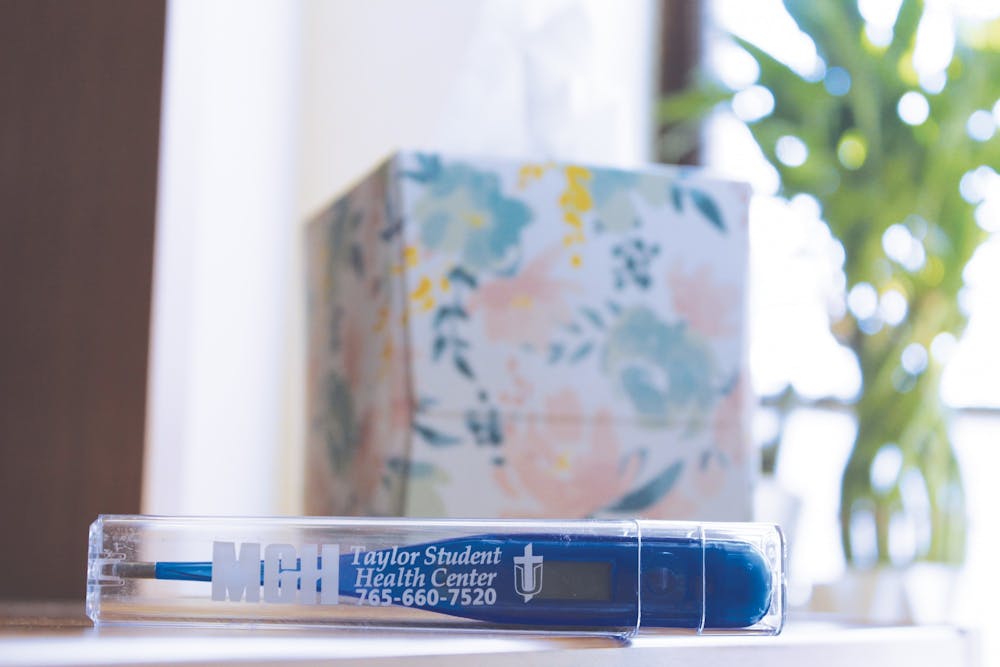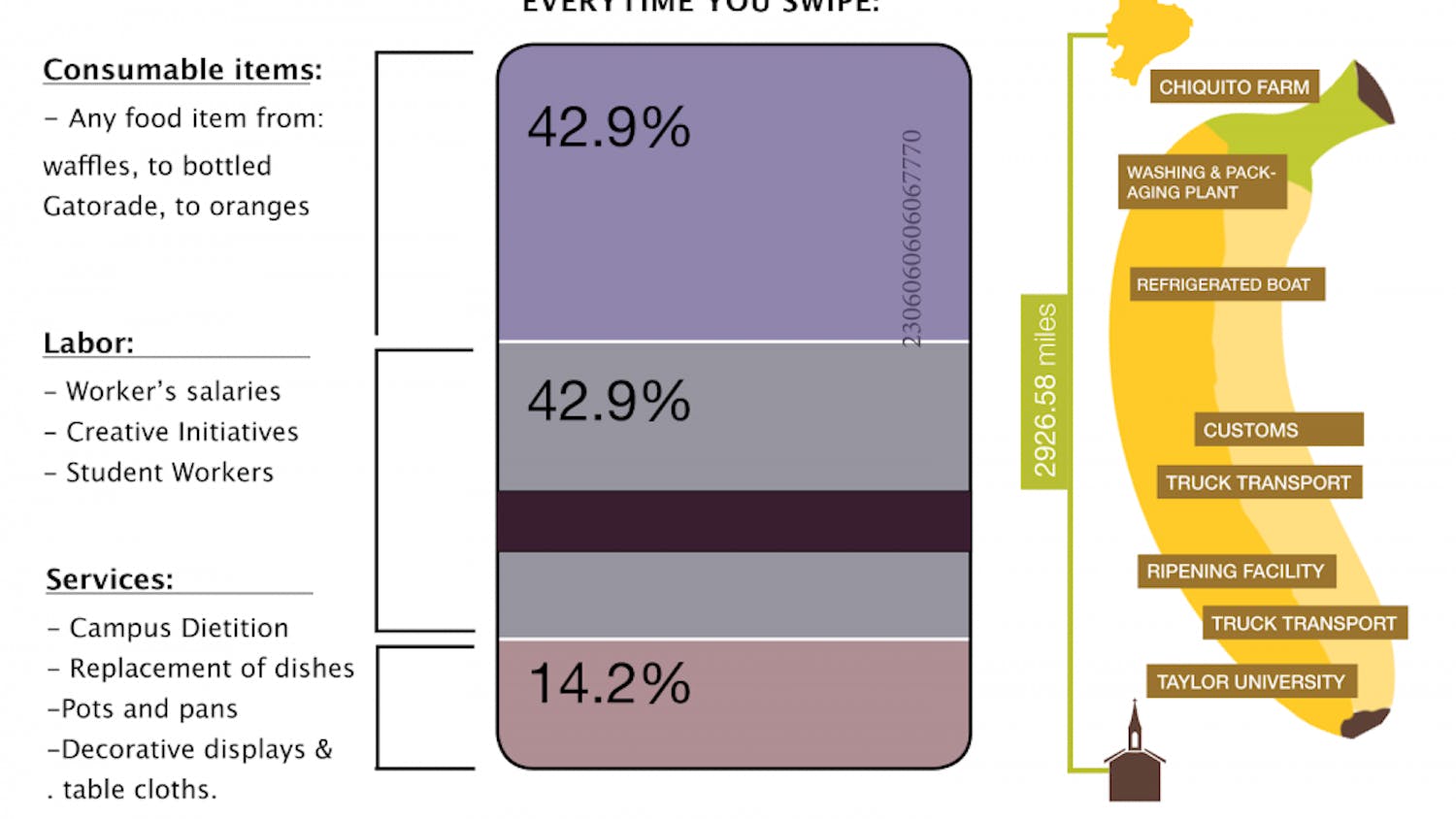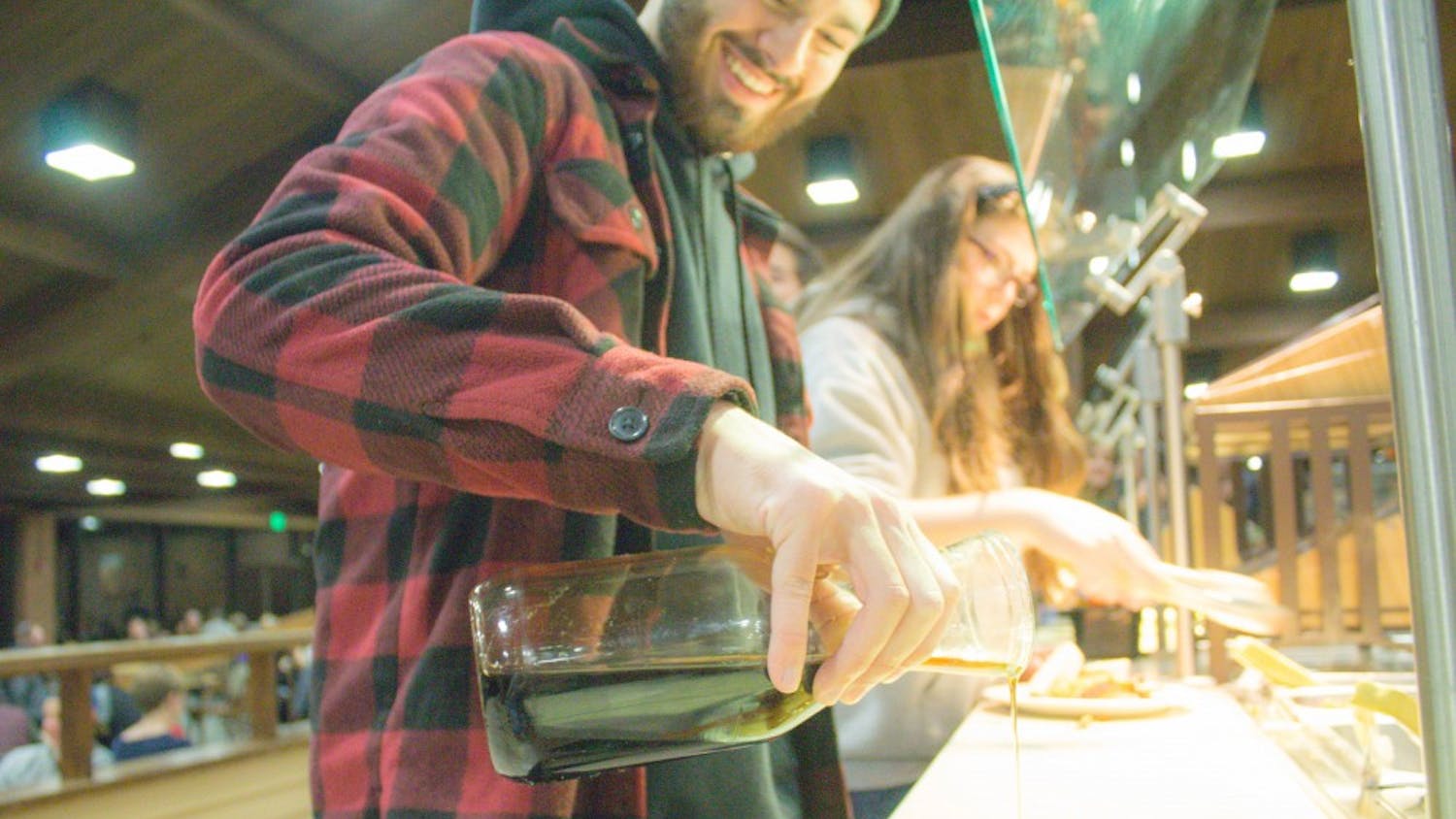The leaves have turned to shades of red, yellow and brown and the breeze is blowing cold over campus. With the changing of the seasons, so often comes the onset of new waves of illness sweeping into dormitories.
This time of year it is not uncommon to encounter students bearing the classic symptoms of the flu — fever, cough, sore throat, runny nose, muscle aches and fatigue.
According to the Centers for Disease Control and Prevention, flu viruses are detected year-round, but are most prevalent during the flu season, which varies from year to year but tends to begin in late fall and reach its peak during the winter.
One outbreak of flu and pneumonia sprung up in Second South English this semester. While sophomore Kate Johnson did not get sick this year, she experienced firsthand the string of sickness on her wing.
“It sounds cliché, but washing your hands and using hand sanitizer is one of the first big steps to protect from germs,” Johnson said. “And if someone in your suite is sick, use disinfectant wipes on the common areas to help prevent it spreading.”
Senior Jordan Wood, who spent nearly three weeks treating a persistent cold this semester, also highlighted the importance of using hand sanitizer, which is readily available inside the entrance to most buildings on campus. He also recommended people keep a ready supply of cough drops and over-the-counter treatments readily available to be prepared whenever a cold might pop up.
Wolgemuth Hall Director Ryan Kristofek also shared his own advice about keeping in good health during the winter months. He underlined the importance of remembering mental health and overall physical wellbeing, beyond just simply avoiding getting sick.
“It’s easy, as winter begins, to bundle up and stay inside,” Kristofek said. There’s less daylight, it’s harder to get around campus, and we can let slip our physical fitness routines, sleep schedules and eating habits.”
To combat the effects of seasonal isolation, Kristofek highlights the importance of community and collaboration to opposing unhealthy winter habits. Having others to go out and about with, whether to the Dining Commons, KSAC or even the Health Center, can encourage students to do things they may not do on their own.
Particularly in the apartments, collaboration in cooking is also helpful to students seeking to produce healthy meals. Individually, tight funds may offer few ingredients. However, if one student has rice and another student brings chicken, a full meal can be rounded out.
Johnson also referenced the importance of maintaining healthy eating habits in the winter, even as the long trek to the Dining Commons may seem even longer once snow piles up on the ground.
“Don’t just eat Chick-fil-A all the time,” Johnson said. “The DC has fruits and vegetables. They’re good and good for you. Also, exercise. It helps you sleep and build up your immune system.”
Kristofek further elaborated on healthy sleeping habits, pointing out that many students may think of quality sleep as just having a set bedtime, but waking up at a consistently decent time is just as important. The key to staying well-rested, he said, is consistency.
Above all, he believes that the most important aspect is to discuss health struggles of all kinds with peers and to help find solutions together.
“Don’t neglect the blessing of having a close community of friends with similar life perspectives,” Kristofek said. “Take advantage of the resources you have while you’re here, the community, counseling center, KSAC and Dining Commons. Starting healthy practices now will propel us to success in the future.”





